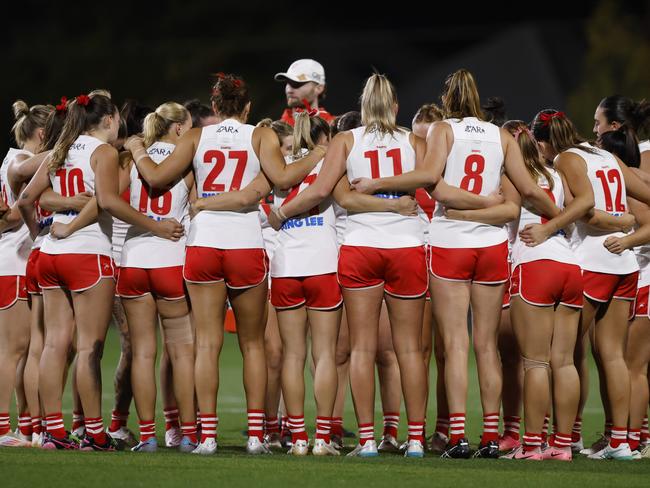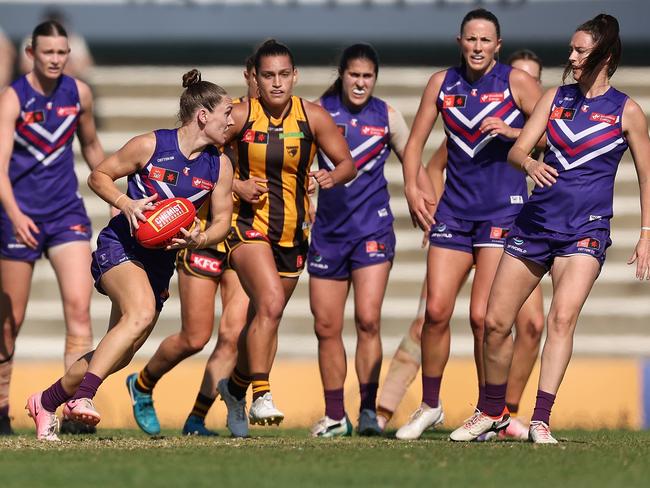Monash University study uncovers untapped power of sleep for mental health in female athletes
Monash University researchers tracked the sleep patterns of dozens of AFLW players over two seasons. The results have sparked calls for change.

Victoria
Don't miss out on the headlines from Victoria. Followed categories will be added to My News.
More football games in the season, often played midweek and requiring night training and interstate travel, may be impacting the sleep habits and mental health of elite AFLW players.
A unique Monash University study has found many players in the women’s football league are suffering from poor sleep patterns which puts their body clock out of sync and their mental health at risk.
The authors say the results, published in the Journal of Sleep Research, strengthen calls for more support for the AFLW competition and its players.
Led by Luis Mascaro, it measured what is known as the athletes’ psychological strain and sleep patterns in 87 female and male players competing in the AFL and AFLW over two seasons.

The study found the female athletes reported poorer mental health, especially when they had disrupted sleep or were sleeping out of sync with their body clocks, but this wasn’t mirrored for male players.
The senior author Dr Elise Facer-Childs is Deputy Director of Monash’s Sleep and Circadian Rhythms Research Program. She said her team has been focusing more on female athletes over the last few years.
“We have seen a huge increase in the interest of women’s sport, and the growth of the AFLW competition is testament to this,” she said.
“But it is important to recognise that male and female athletes may respond and engage with professional sport differently.”

Dr Facer-Childs said many of the AFLW players also had to juggle full-time jobs with the demands of the sport that included a different schedule to AFL in terms of training and playing condensed fixtures across a shorter season.
She said the majority of sports science research had been done on men and then generalised.
What makes the results of this study valuable for research, Dr Facer-Childs said, was being able to study professional female and male players in the same sport for a comparison.
“We’re not looking at mental health diagnoses or those with clinical conditions, it was a measure of athlete specific psychological strain,” she said.

Dr Facer-Childs said all elite athletes faced a unique set of stressors every day which may make them vulnerable to sleep disruption and associated mental health symptoms.
“It may be different to general population mental health because there are different factors at play,” she said.
“The mental and physical load that athletes have on top of the professionalism, the media scrutiny, the selection pressures, the injuries, things which are quite unique to this population.”

Dr Facer-Childs said interestingly, the researchers did not find those relationships of poorer sleep and mental health with the AFL players in the study.
“We measured exactly the same things, but the men with poorer sleep who were out of sync with their body clocks didn’t have poorer mental health, and didn’t have that higher psychological strain,” Dr Facer-Childs said.
“It suggested that our female athletes might be more vulnerable to this, which highlights the need to look at female and male athletes separately. We should not group them together.”
Mr Mascaro, a PhD candidate from the Monash School of Psychological Sciences, said the findings suggest that athletes and sports organisations should also consider monitoring sleep and body clocks.
Dr Facer-Childs said sleep was an untapped resource and an untapped human performance enhancer not being used enough.
Originally published as Monash University study uncovers untapped power of sleep for mental health in female athletes




